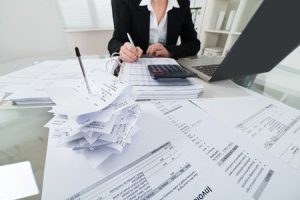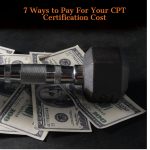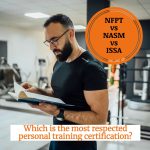

As April 15th approaches it can be a tricky thing for personal trainers to save all the money that they can. I’ve put together some tax tips for personal trainers to use and hopefully save some money in the long run! I have found (learning the hard way) it’s much better for me to use my long trusted CPA for my IRS filing. Over the past 25+ years, both he and I learned a lot of good useable information that keeps money in my pocket.
I took his suggestion and sent the IRS a check whenever I had some “extra” money. Monthly was best for me as I could budget easily. I have, however, sent checks in quarterly, semi-annually and even yearly. The IRS has never chastised me thus far for sending them money! Go figure, right?
This approach is most beneficial if you’re like me and are a true “Independent Contractor.” This means I’m on nobody’s payroll, thus 100% accountable for my accounting and finances.
If you, like myself, pay a monthly fee to a gym owner or an institution where you train folks, then
get a printed monthly receipt for your fee payments! Many times I’ve paid my fee in cash, so a receipt was paramount. I’m particularly fortunate to be affiliated with the University of Texas Medical Branch and have a true professional for a boss. Being a career employee of the great state of Texas, and an active, certified, part-time trainer himself, he understands my accounting needs fully. Here in Texas we have no state tax rate. So that is one less thing to deal with before April 15th. Make sure your state requires a filing.
At times I treat clients, usually in a small group, to lunch or coffee. Save this receipt and claim it. I’ve also had t-shirts done to pass out. Gift certificates and gift cards on client birthdays adds future value to my business. I donate “one free hour long session” to a good many local events as door prizes. When the certificate is redeemed, I’m able to deduct that as a charity gift.
In past days, I’ve canvassed a new area with handshakes, flyers and business cards to generate revenue. Save those expenses also as printing costs deduct well. If I drove to any in-home training sessions I took the legal deduction for mileage. Again, receipts are mandatory! I’ve thankfully never been audited by the IRS and NEVER want to be.
I actively write published fitness related articles for various media. My office space, printer, paper, ink, Internet fees, software and equipment updates have been partially deductible, accordingly. Some I’m paying for but most I’m not. I value my writing time to be as valuable as my Master Trainer time so I keep up with hours spent.
You do have all these receipts right? Here’s hoping some of my experience is helpful to you along the way.
If you’ve got more tax related questions, come and ask on the NFPT Facebook Page! We would love to help you.
Other Personal Training Tax Articles
Bill McGinnis is an NFPT-certified Master Fitness Trainer, and trains exclusively at the University of Texas Medical Branch Alumni Field House on Galveston Island, TX. He has over 25 years in the Fitness Industry, including work as the Men’s Fitness Trainer at the Betty Ford Center and as a Fitness Manager in Southern California. He currently specializes in training older clients for balance, strength, endurance, golf, tennis and an improved quality of life. He can be contacted at mastertrainer.tx@gmail.com.






